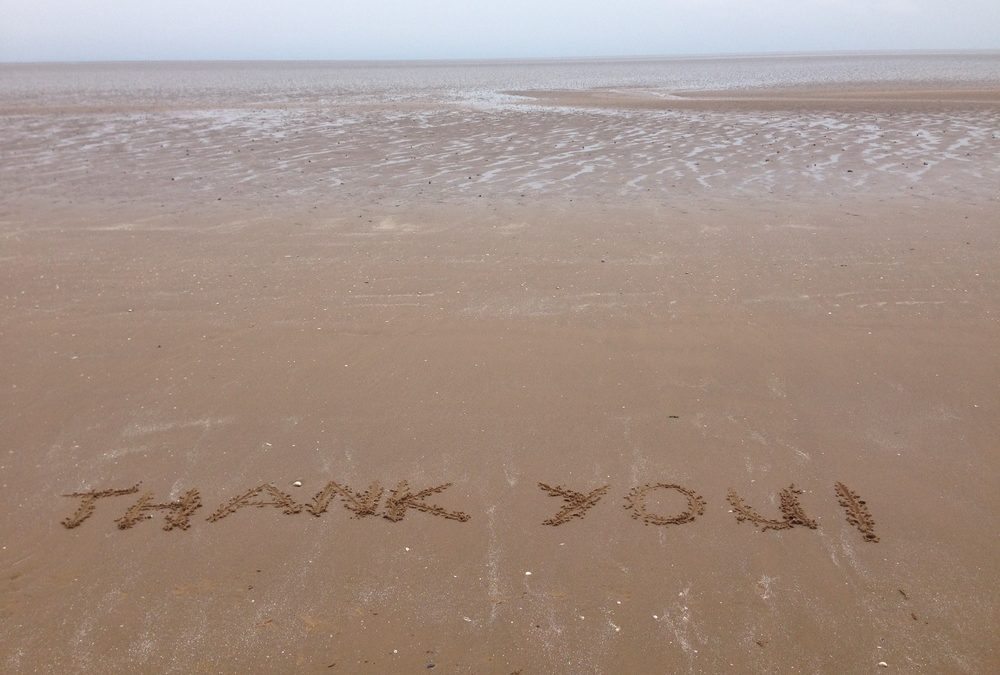
Want to know a quick and easy way to make someone’s day? Tell them thank you, like you mean it. But how can you do this without looking like you are: a) sucking up, b) overly emotional or c) being formulaic?
Here’s a trick that works really well. I’ve tried it. I found it in Vanessa King’s excellent book – 10 Keys to Happier Living. Ready? Here goes, three levels of thank you:
1. The Economy: Say thank you for the thing.
2. The Premium: Say thank you for the thing and note the beneficial impact of what they did, e.g. what it meant to you/ how it helped you.
3. The Super-Charged Deluxe: Say thank you for the thing, note the beneficial impact of what they did and then (and this is the crucial bit) note the positive quality or strengths you recognise in the other person.
So, at work, someone sends you a helpful email that is clearly set out and saves you a lot of time. You might say, ‘Thank you for the email – it made my life easy! It was really kind of you to take the time to set it out so clearly.’ I was explaining this to a friend who came over for dinner. He had texted me earlier telling me he was bringing over some snacks and extras to add to our meal. Explaining the Super-Charged Deluxe thank you, I said: ‘Thanks for texting me earlier about bringing snacks. I was only making one dish so I was worrying it wasn’t enough, and when I got your text I was able to relax and enjoy cooking. It was super thoughtful of you.’ Even though he knew what I was doing, he said it still made him feel good, because I had recognised that he was thoughtful.
What stops us? Laura Trice suggests it’s embarrassment. I think she is right. Quite often I’ll tell someone else how grateful I am for a friend’s help/support, but I feel like I can’t tell the friend to their face. There is something deeply uncomfortable about telling someone how much what they’ve done means to us (especially for a Brit).
Maybe there is also the fear of looking like we are being manipulative, not genuine or, worst of all, gushing. We might worry about the perception that we are thanking people for something so that we can get more from them in the future. Incidentally, this is effective. Studies confirm the fairly obvious truth that if people are thanked, they are more likely to help in the future, and not just the thanker, but anyone who asks for help. But the reason this happens is because being thanked makes people feel good about their kind deeds. So if you feel embarrassed about thanking someone, just remember you are doing a social good by increasing the incentives in society to be kind.
Gratitude also has a host of other benefits, as I’ve mentioned before. I’ve found that gratitude journaling increases how much I notice kindnesses, and so I probably thank people more.
Now, finally, to end with a Super-Charged Deluxe thank you to my dear sister: Thank you for proof-reading my blog posts honey. It makes me much more relaxed about publishing them to know you’ve cast your beady eye over them first. You never change them much, which makes me more confident about what I write, but the little tweaks you add make all the difference. You have a perfect combination of an editor’s eye and a sister’s heart!

